ANDREW SCHNEIDER, DIRECTOR OF FINANCE AND OPERATIONS: We’ve all experienced the feeling of "getting in the zone" at some point, that heightened sense of focus, a blissful tunnel vision that drives us when creating something that we’re passionate about. It’s a wonderful feeling. But it’s this same passion that blinds us from how our creations might be received by the world around us.
We must strive not just to teach STEAM (Science, Technology, Engineering, Arts, and Math) in our school curricula, but STEAM with empathic social awareness.
I feel like I’ve seen it a hundred times on Shark Tank, an inventor, so entrenched and myopic after thousands of hours drumming up his or her invention, unable to comprehend why “the sharks” simply cannot recognize the genius in the creation that is being presented to them. So often the final hurdle to clear when turning an idea into a business is empathy, putting yourself in the shoes of others in order to help solve their problem, not your problem.
For that reason, we must strive not just to teach STEAM (Science, Technology, Engineering, Arts, and Math) in our school curricula, but STEAM with empathic social awareness. More specifically, we need to teach our students to be entrepreneurs. Engineers solve problems, but entrepreneurs go a step further, solving problems for others. Entrepreneurship is the convergence of engineering and empathy, and teaching it through a STEAM curriculum offers our students an opportunity to have an immense impact on the world around them.
If you ask our Peck students: “Who invented the automobile?” the sharpest ones will probably tell you Henry Ford. Many adults assume the same. Perhaps one of greatest entrepreneurs in history, Ford is often quoted as (allegedly) saying “if I asked people what they wanted, they would have said faster horses.”
The fact that Ford probably never said this is irrelevant. Mantras such as this one have inspired a generation of young entrepreneurs, implying that, just because others can’t see your vision doesn’t mean that you don’t have vision; don’t give the people what they want, but instead give them what they don’t yet know they want.
It is Ford who is most commonly mis-credited as the inventor of the automobile, and it’s because of his empathic ability to connect the automobile to the world around him.
It’s a seductive idea, the idea that you are right, and that if no one else can see it, it is somehow further proof of your forward-thinking genius. But to focus on the “not listening to others and sticking to your guns” is the wrong message to take away from this quotation; Ford’s genius was not that he ignored conventional wisdom, but rather that he accepted it unequivocally. Ford gave the masses exactly what they wanted – a faster but accessible form of transportation.
Ford didn’t invent the automobile – far from it. While the Model T hit the mass market in the early 1900’s, early iterations of the internal combustion automobile appeared as early as the late 1600’s, and found success by the mid 1800s. But it is Ford who is most commonly mis-credited as the inventor of the automobile, and it’s because of his empathic ability to connect the automobile to the world around him.
Ford understood a critical element of business rooted in empathy, now referred to as price-based costing. It wasn’t about building an exceptional vehicle; it was about getting an exceptional vehicle into the hands of the every-day consumer, and to do that, Ford saw that price was the biggest hurdle. He put himself in the shoes of his consumer, and engineered a car that the mass market could afford. It was as much a triumph of empathy as it was of business operations and vision.
As the United States education system continues its shift towards a heavy focus on STEM or STEAM programs, we cannot simply strive to become a country of engineers; the best STEAM programs must drive students to think creatively, critically, and with an entrepreneurial mindset.
Engineers build things, great big things. And the importance of this should by no means be understated because we need engineers. But we need our engineers to be more; we need them to be entrepreneurs. Entrepreneurs don’t just build things; they build things for others, an exercise in both creativity and empathy.
Entrepreneurship is both a constructive enterprise and a social one. We can only connect the skill set delivered through a STEAM curriculum to the world around us through empathy. Educators should push their students to think like entrepreneurs while tinkering in Maker Spaces, science labs, or creativity centers. When educators impart the ability and desire to create things for others, we add value to the world exponentially, and maybe, just maybe, we can get those sharks to invest!





